 |
| 'He says East, she says West', US and China still don't really want to come together? (Source: Adobe Stock) |
China Media Group aired a video of the two heads of the US and Chinese Commerce Ministries, both smiling and appearing to be in a positive mood, as they entered the meeting room with officials from both countries. A subsequent statement from the Chinese Ministry of Commerce (MOFCOM) affirmed that economic and trade relations are the foundation of China-US relations, and China is willing to work with the US on the basis of mutual respect, peaceful coexistence and win-win cooperation to provide a favorable policy environment for businesses in both countries and promote bilateral trade and investment.
“It is extremely important that we have a stable economic relationship that benefits both countries. In fact, that is what the world expects of us,” said US Commerce Secretary Gina Raimondo, according to CNN .
Specific actions are needed.
US-China relations have recently deteriorated with increasing disagreements, including trade restrictions recently announced by US President Joe Biden, imposed on sensitive high-tech sectors of the world's second largest economy - a move Beijing criticized as "going against globalization".
On August 9, US President Joe Biden signed an executive order restricting investment in sensitive high-tech sectors in China. Accordingly, the US Treasury Department will restrict or prohibit certain US investments in China in sensitive high-tech sectors including semiconductors, quantum computing and artificial intelligence (AI). In addition, the White House must be reported on funding activities in other technology sectors.
The move is expected to increase tensions between the world's two largest economies, although US officials insist the bans are aimed at addressing national security risks and not separating the two interdependent economies.
Meanwhile, US Commerce Secretary Gina Raimondo has just concluded a four-day visit to China (August 27-30) to promote business relations between the world's two largest economies. Although the recent negotiations were described as "reasonable, frank and constructive", each side's statement clearly showed the "hardness" of defending their own views, with neither side showing any desire to compromise.
At a meeting with Minister Gina Raimondo (August 29), Chinese Premier Li Qiang warned, "Politicizing economic and trade issues and over-exaggerating the concept of national security not only seriously affects bilateral relations and mutual trust." He noted that this situation also erodes the interests of businesses and people of the two countries, and has a catastrophic impact on the global economy.
Therefore, the Chinese Prime Minister called on the US to change its strategy, saying that "the two sides should strengthen mutually beneficial cooperation, reduce tensions and confrontations, jointly promote the world economic recovery and respond to global challenges."
Meanwhile, during a meeting with Chinese Vice Premier He Lifeng, the US Secretary of Commerce described the US-China trade relationship as “one of the most important relationships” in the world. However, Ms. Raimondo bluntly asserted that the US would not make concessions or compromises on national security issues and said that Washington was not seeking to contain Beijing.
In a statement late in the night during the visit, MOFCOM said Chinese Commerce Minister Wang Wentao expressed deep concerns over various US policies toward China such as Section 301 tariffs, semiconductor policies, investment restrictions and sanctions on Chinese companies, stressing that over-hyping the concept of national security is not conducive to bilateral trade.
Perhaps the most notable outcome was the announcement by both sides to establish new communication channels between the two countries' trade agencies, including a working group of Chinese and US officials and business representatives to seek solutions to specific trade issues, according to MOFCOM.
The two heads of the two countries' Ministries of Commerce also agreed to maintain regular contact and meet at least once a year, establish a mechanism for exchanging information on export controls, and agreed to conduct technical consultations between experts on enhancing the protection of trade secrets and confidential business information in administrative licensing procedures.
Experts say the establishment of new communication mechanisms shows that the two sides are taking necessary measures to strengthen negotiations to resolve disputes. However, concrete actions from Washington to address China’s core concerns about restrictive measures are needed to achieve stable bilateral economic and trade relations.
Bai Ming, deputy director of the Institute of International Market Research at the China Academy of International Trade and Economic Cooperation, commented that these mechanisms are mainly procedural in nature to enhance communication on necessary issues, but concrete actions are important. “We hope that the US side will truly show sincerity and resolve these outstanding issues, because just further negotiations on these issues are not enough,” said Bai.
The outlook is not safe?
The New York Times recently commented that, in the context of the federal government trying to restart relations with China, many states in the US are increasingly leaning towards restricting China.
Such measures in states like Florida, Utah and South Carolina are part of an emerging political trend in the US aimed at reducing economic dependence on China, as well as limiting Chinese investment in the US due to national security concerns.
Sharing these concerns, the Biden administration is looking to boost domestic manufacturing and strengthen trade ties with allies.
But the measures taken at the state level tend to be much more drastic than what the federal government is doing, prompting a backlash from business groups, who fear that state governments are moving toward protectionism and abandoning a long-standing tradition of welcoming foreign investment in the United States.
More than 20 U.S. states, including Florida, Texas, Utah, and South Dakota, have considered or enacted laws that would restrict Chinese individuals and entities from buying and selling land and real estate in their jurisdictions. Some of the laws are even stricter than federal regulations.
At the federal level, a committee headed by the Treasury Secretary is tasked with reviewing and blocking transactions that could result in foreign control of businesses or real estate located near U.S. military facilities. Meanwhile, several states are considering or have enacted regulations that would prevent China and other countries of concern from buying farmland and property located near “critical infrastructure.”
The surge in regulations comes amid growing anti-China sentiment, creating a new challenge for the federal government, which has sought to stabilize economic ties by sending a series of senior officials to China in recent weeks, including a trip by U.S. Commerce Secretary Gina Raimondo.
But while the federal government sees China as a necessary partner, local officials appear determined to limit ties with America's third-largest economic partner.
One of the most sweeping restrictions was enacted in Florida. In May 2023, Governor Ron DeSantis signed a law banning Chinese individuals or companies from buying or investing in real estate within 10 miles of a US military base or critical infrastructure such as an oil refinery, liquefied natural gas terminal, or power plant. However, the law is “so broad that even a fund or company that holds a small stake in a Chinese company or investor could be in violation of the law if it purchases such property.”
In the short term, the restrictions are creating uncertainty for investors and fund managers who intend to do business in Florida. Now, these people are faced with the choice of either withdrawing their business plans or ending their relationships with Chinese investors.
The state-level investment restrictions are occurring at the same time as efforts in Congress to block Chinese-based companies from buying U.S. farmland and impose additional restrictions on U.S. individuals and organizations investing in industries related to China’s national security. The Senate overwhelmingly voted in favor of the measure in July, and the House of Representatives is now awaiting approval of the measure before it becomes law.
Analysts say the combination of restrictions at both the federal and state levels in the US could further complicate diplomatic relations between the two countries. Beijing is likely to see this as a sign of growing anti-China sentiment in the US and an excuse for retaliation.
Source


![[Photo] Solemn opening of the 9th Session, 15th National Assembly](https://vstatic.vietnam.vn/vietnam/resource/IMAGE/2025/5/5/ad3b9de4debc46efb4a0e04db0295ad8)

![[Photo] National Assembly delegates visit President Ho Chi Minh's Mausoleum](https://vstatic.vietnam.vn/vietnam/resource/IMAGE/2025/5/5/9c1b8b0a0c264b84a43b60d30df48f75)



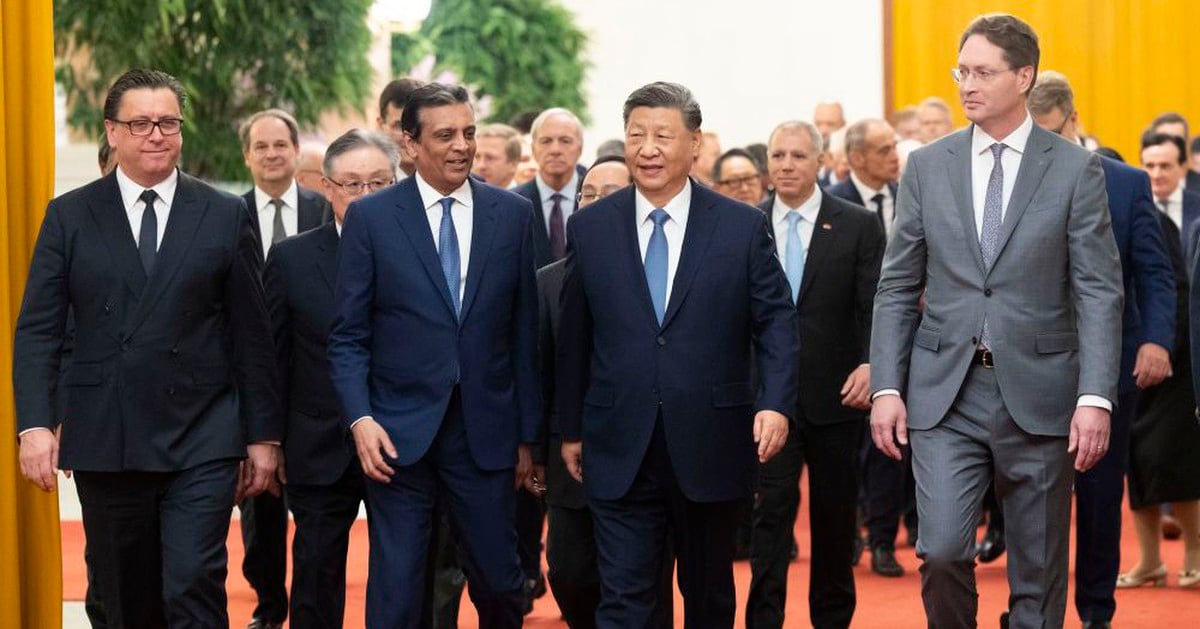

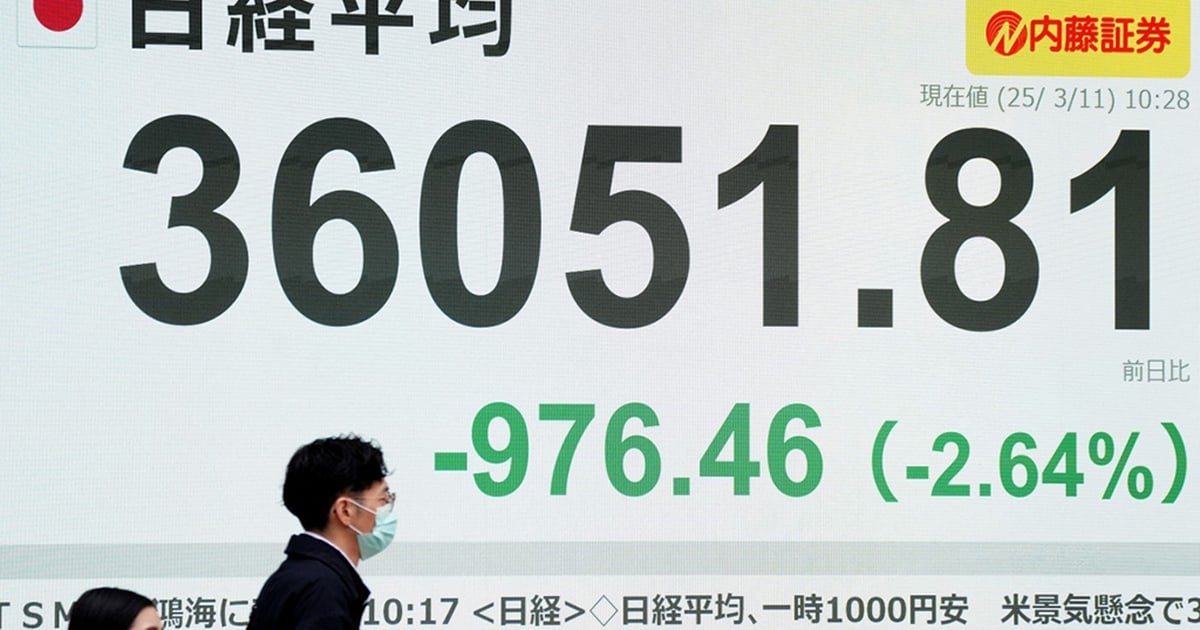



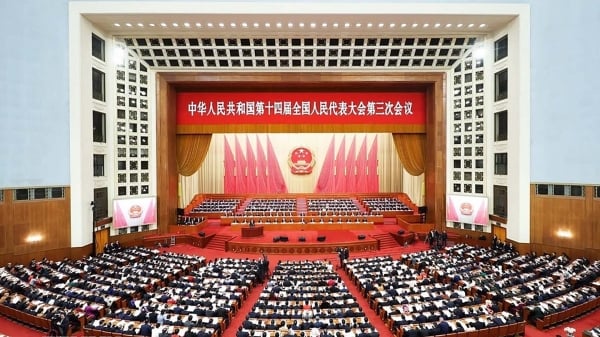
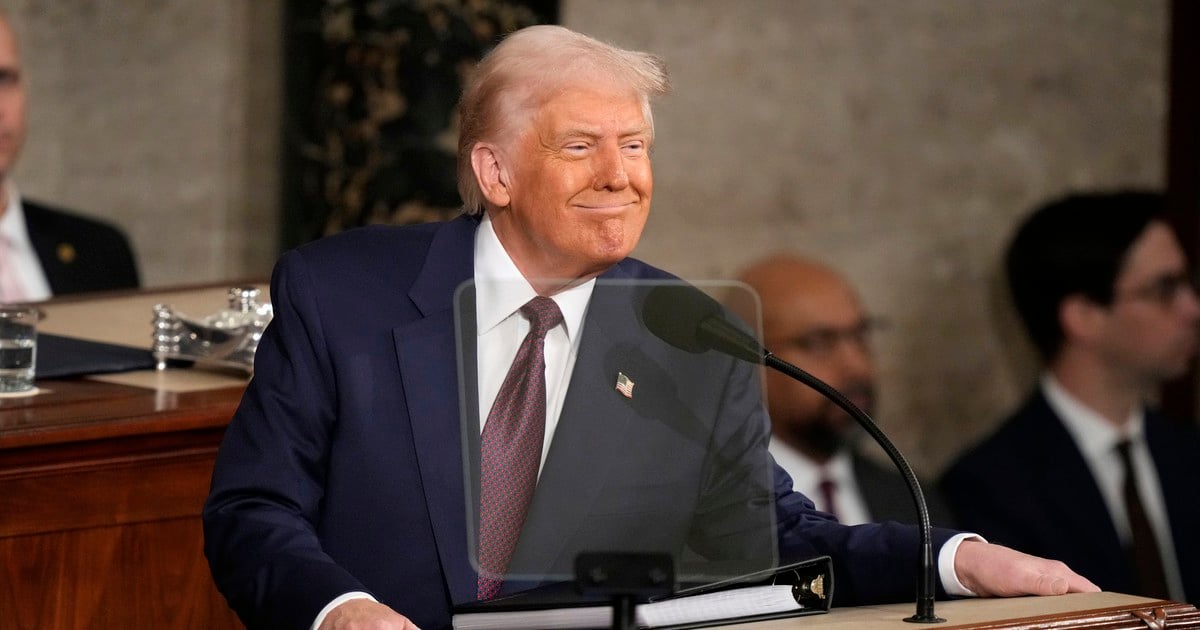
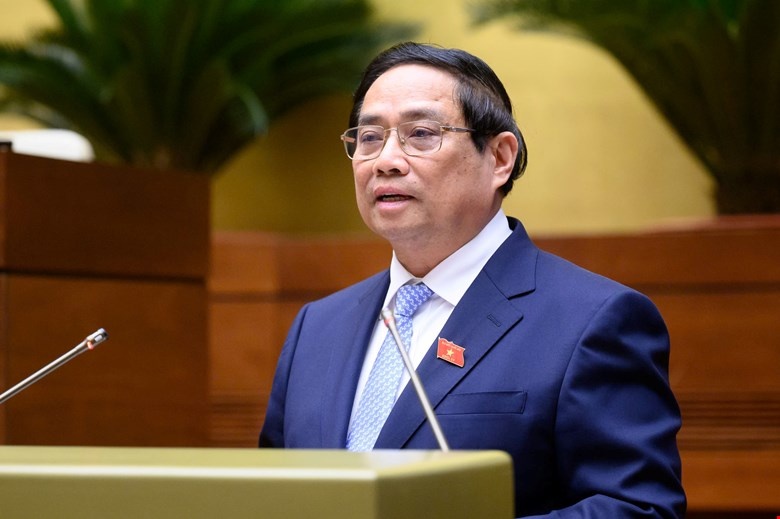












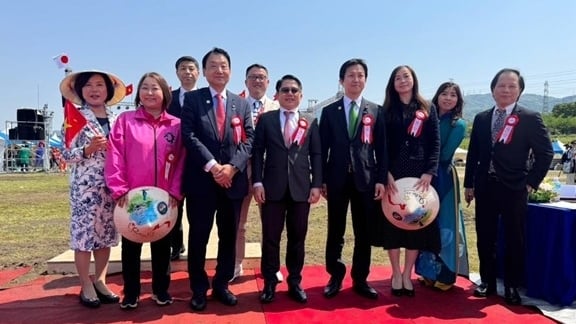
![[Photo] Vietnam shines at Paris International Fair 2025 with cultural and culinary colors](https://vstatic.vietnam.vn/vietnam/resource/IMAGE/2025/5/4/74b16c2a197a42eb97597414009d4eb8)
![[Photo] Bus station begins to get crowded welcoming people returning to the capital after 5 days of holiday](https://vstatic.vietnam.vn/vietnam/resource/IMAGE/2025/5/4/c3b37b336a0a450a983a0b09188c2fe6)
![[Photo] General Secretary To Lam receives Sri Lankan President Anura Kumara Dissanayaka](https://vstatic.vietnam.vn/vietnam/resource/IMAGE/2025/5/4/75feee4ea0c14825819a8b7ad25518d8)
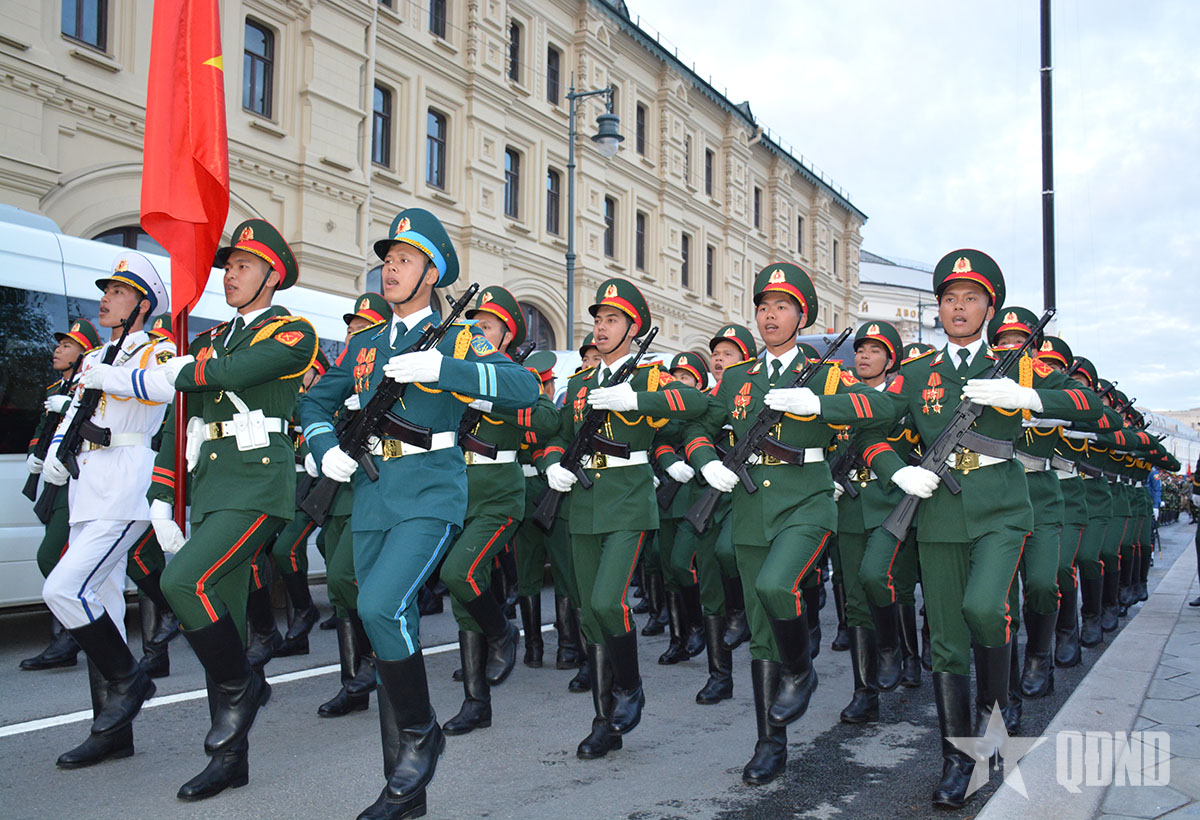






























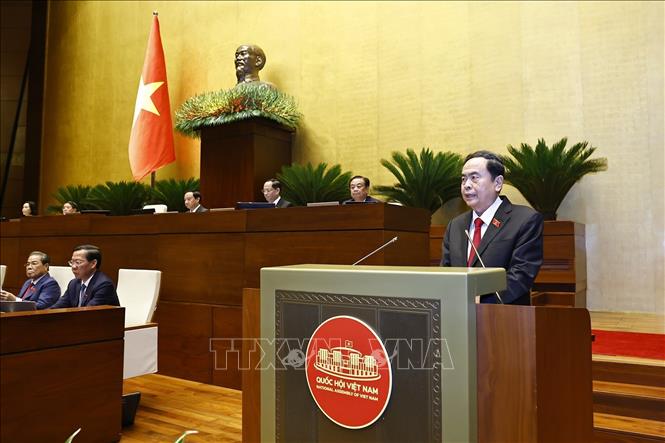



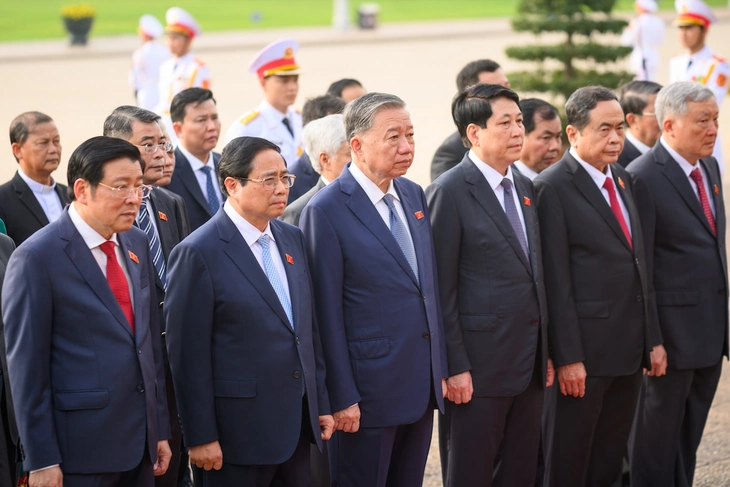
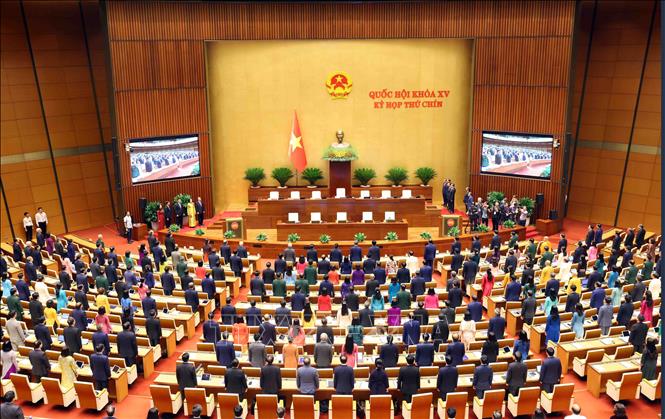


























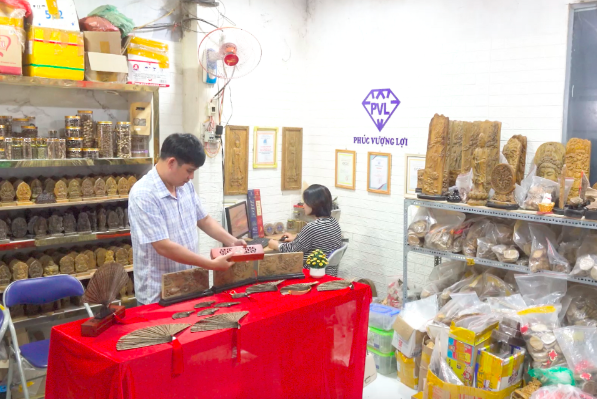



Comment (0)